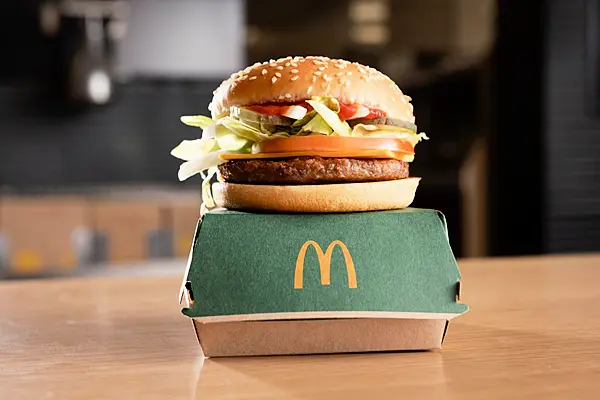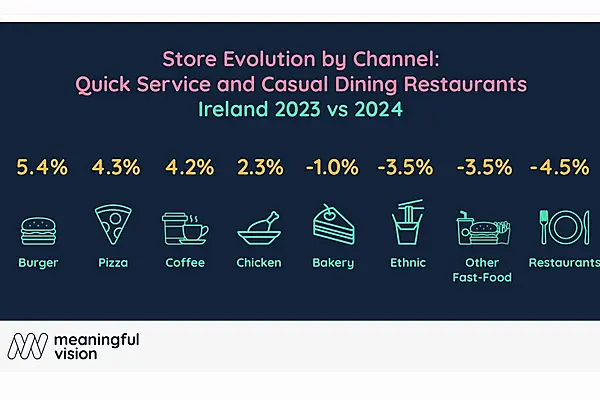McDonald's posted a bigger-than-expected drop in fourth-quarter US comparable sales on Monday, as demand took a hit from a brief E.coli outbreak while diners remained watchful of their spending.
It fell 1.4% in the US, McDonald's biggest market, its steepest drop since the COVID-19 pandemic almost five years ago when restaurants limited operations to drive-thru and delivery. Analysts estimated a 0.4% decline, according to LSEG data.
Similar to fast-food rivals such as Yum Brands and Wendy's, McDonald's ramped up its limited-time offers and meal deals in 2024 to spur spending among customers preferring to eat meals at home.
Analysts said the company's reliance on discounts could hurt margins in the coming quarters. Discounts account for over a third of sales, according to BTIG analyst Peter Saleh.
McDonald's extended its $5 meal deal launched in June into December and introduced Chicken Big Mac in October, along with other special releases.
But customer visits weakened after an E.coli outbreak that started on October 22 and forced McDonald's to temporarily suspend sales of its Quarter Pounder hamburgers in a fifth of its 14,000 U.S. restaurants.
The US Centers for Disease Control and Prevention on December 3 ended its investigation of the incident, which sickened hundreds and killed at least one person.
Customer traffic improved slightly in the fourth quarter compared to a year ago, the company said, but that was offset by a smaller average amount spent by customers per visit.
The company's global same-store sales rose 0.4% in the quarter ending December 31, a surprise rise compared with expectations of a 0.63% decline.
This was driven by a 4.1% rise in McDonald's business segment where restaurants are operated by local partners, led by Middle East and Japan markets.
Shares of the company were up 1.3% in choppy premarket trading.
It expects 2025 operating margin to be in the mid-to-high 40% range, compared to 45.2% for 2024. Adjusted earnings per share of $2.83 was in line with market expectations.









